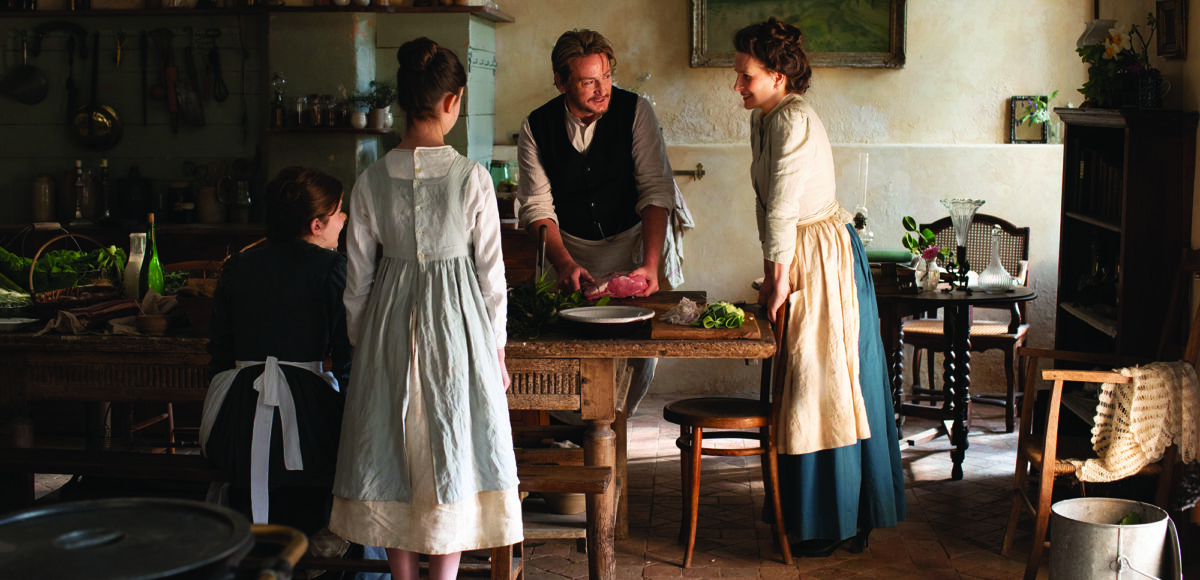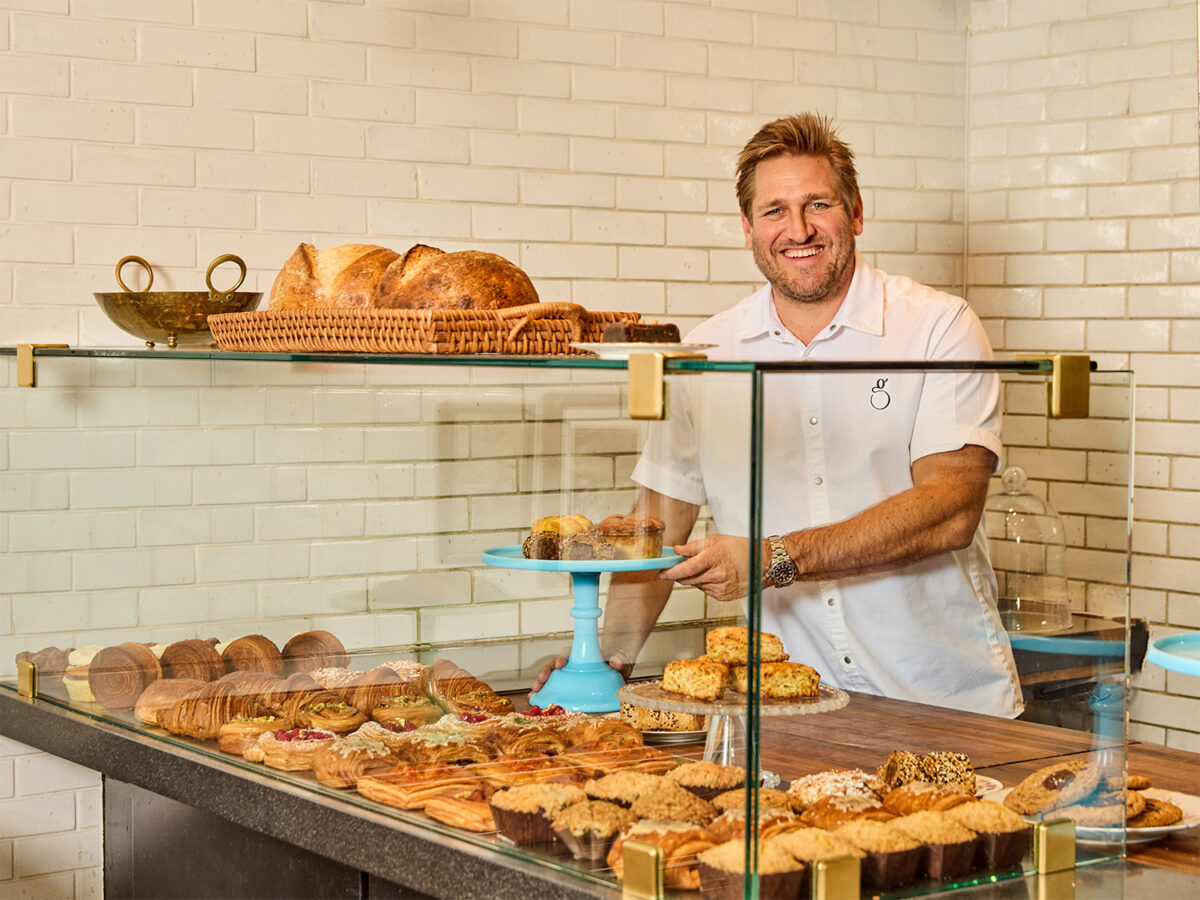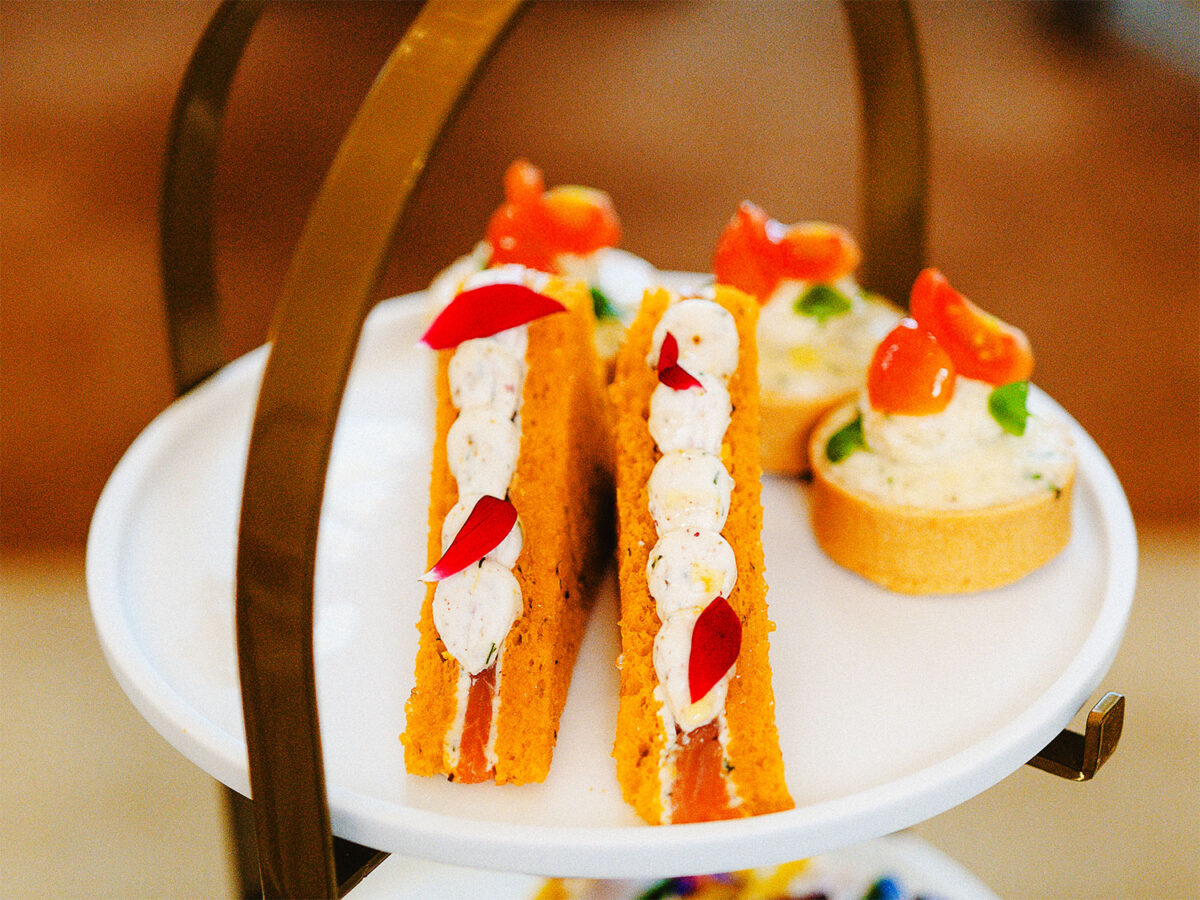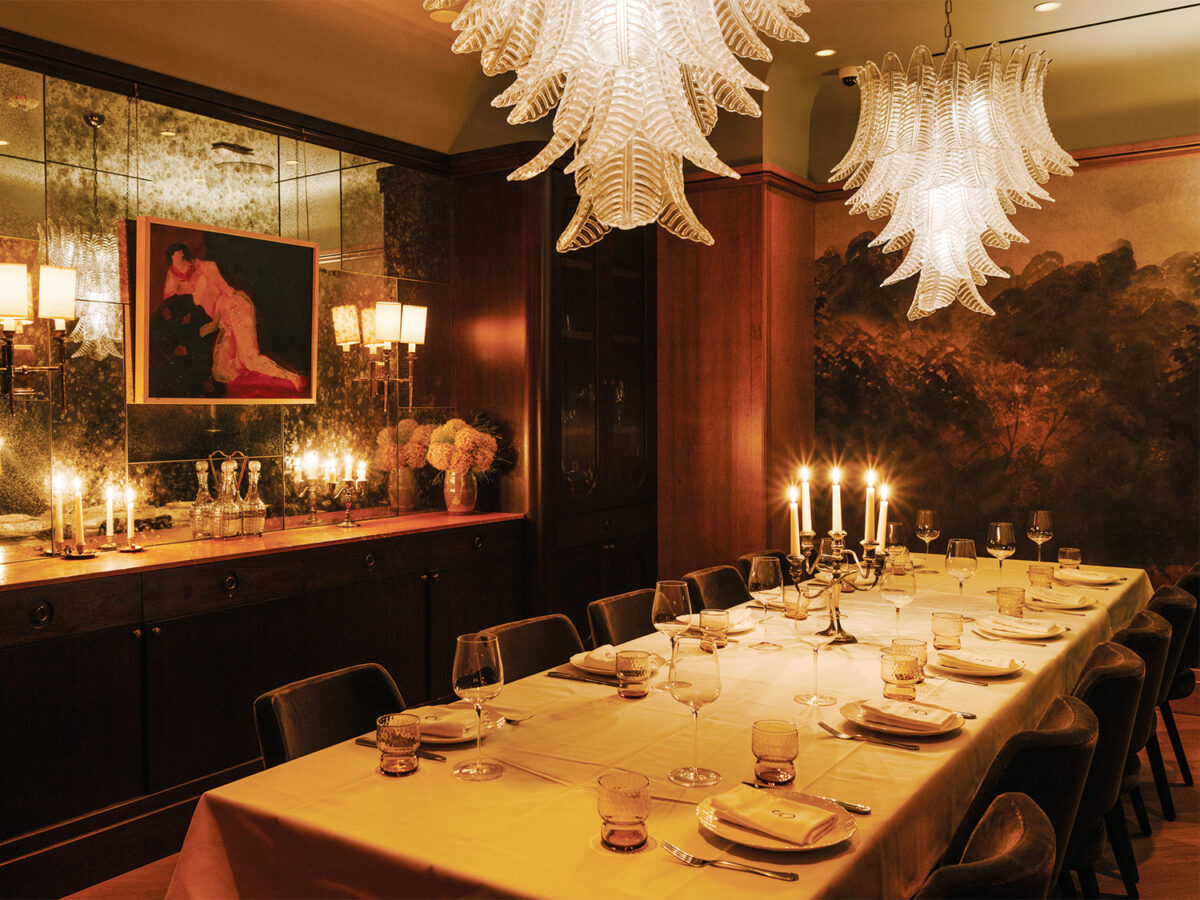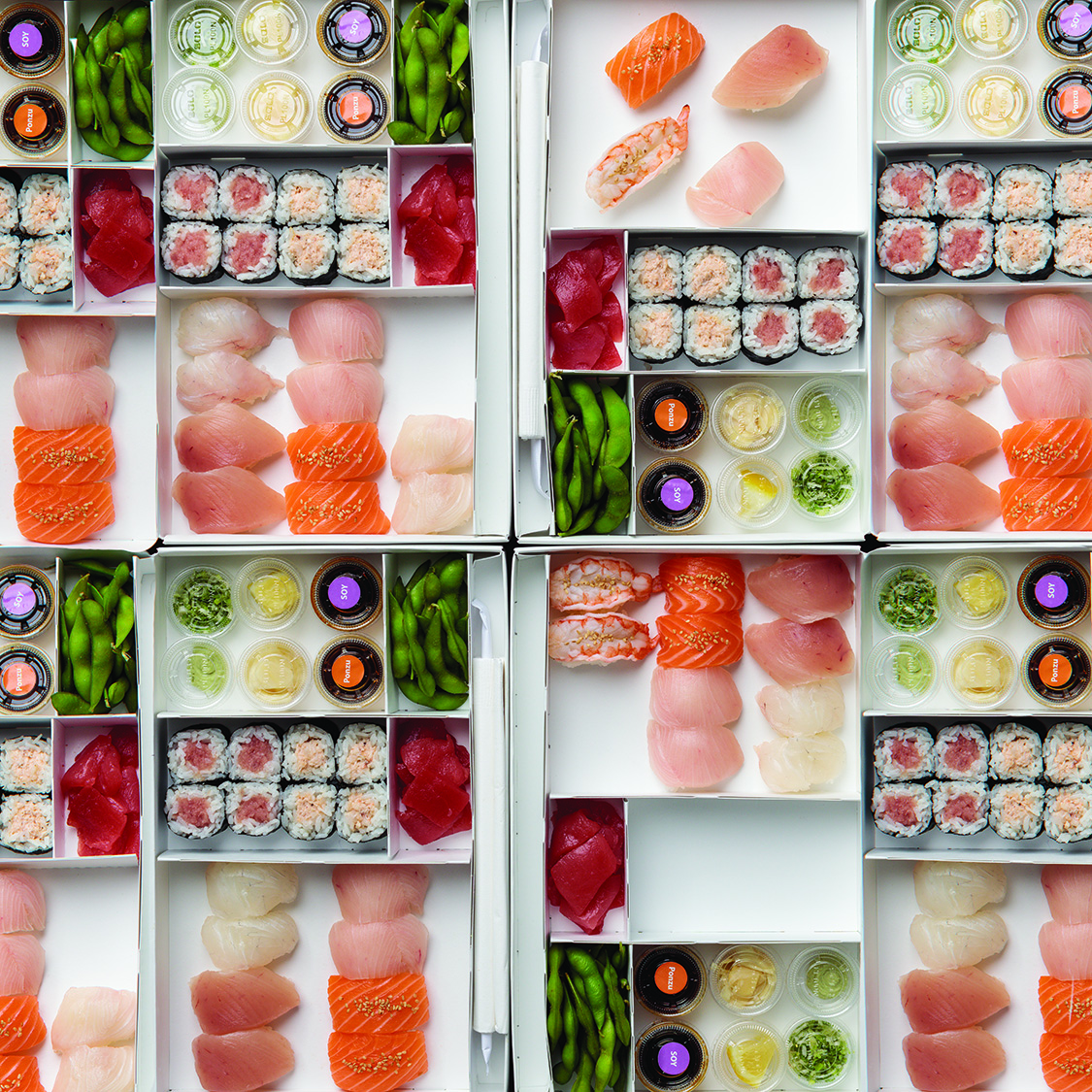Food, at the very least it’s sustenance, but at its height it’s a symphony, a masterpiece, something that wars have been fought over. There’s a long list of movies centered around food and wine; these are my favorites, in alphabetical order.
1. “Babette’s Feast” (1987), a universally revered Danish movie, stars iconic French actress Stéphane Audran as a refugee from war who takes asylum in an isolated village along the rocky coast of Jutland. Arriving in the middle of the night at the home of two pious sisters, she implores them for a job. They have no money to pay her but she begs to work for free. Grateful for the many happy years she’s spent with them, she asks to cook a French dinner in honor of their deceased father’s birthday. And what a feast it is, lusciously prepared with exotic ingredients, served to abstemious villagers who are afraid that enjoyment would open them to the sin of gluttony. Oh the food, the wine, the service, the colors! You will definitely remember that banquet. (Max)
2. “Big Night” (1996) is an ode to Italian cooking sung by Stanley Tucci (Secondo) and Tony Shalhoub (Primo). No, it’s not a musical but it is an opera of fine food served before its time in the New Jersey of the 1950s. Secondo and Primo, brothers, are recent immigrants from Italy hoping to bring elevated cuisine to America. Unlucky for them, their restaurant is located on the same block as the hugely popular Paradise, a checkered tablecloth meatball and spaghetti joint. Pascal, the owner of Paradise, will stop at nothing to lure Primo to his kitchen, believing the only way to do this is to ruin their restaurant, devising an elaborate scheme built on a plausible lie that will prove their undoing. If you remember nothing else of this wonderful film, it will be the timbale. (Paramount+)
3. “Delicious” (2021) takes place just prior to the French Revolution. The starving populace may be humming a tune of revolt but it falls on the deaf ears of the Duc de Chamfort who has raised gourmet cuisine to a competitive sport. His talented chef, Manceron, will be his ticket to Versailles and the King if his guests approve the latest menu. But one of them doesn’t and Manceron is banished, returning to his humble origins, declaring he will never cook again. Into his life enters Louise who asks that he take her as an apprentice. They both blossom and the kitchen is soon bubbling away. Her motives, however, are not for the love of food but the love of revenge on Chamfort who ruined her life. Ultimately, she will get that revenge but not in the way she originally planned. It is the food that stars, all framed and sumptuously photographed like 17th and 18th century still lifes. (Amazon Prime)
4. “Like Water for Chocolate” (1992) is a storybook romance set in upper middle-class Mexico during the era of Pancho Villa. This is the Cinderella story of Tita whose romance with Pedro was preordained in the cards by her much-loved nanny Nacha. But because Tita is the youngest daughter, tradition dictates that she may not marry and must remain at home to care for her mother Elena. Denied the woman he loves, Pedro marries Tita’s oldest sister, Rosaura, just to be close to Tita. Tita’s powerful mastery in the kitchen is seductive, especially for Pedro and her sister Gertruda who runs off with a revolutionary. Passion, unrequited love, a good witch (Nacha), a bad witch (Elena) and a selfish sister (Rosaura) all are stirred into a simmering pot of magical realism and the mouthwatering food that comes out of Tita’s kitchen. (VOD)
5. “The Lunch Box” (2013) is a delightful film from India that grows deeper and more romantic as it unspools. A young woman, living in a small drab apartment in Mumbai, has, for all intents and purposes, been abandoned by her husband who has lost interest in her. An excellent cook, she is determined to win him back with his favorite lunch, all packed elaborately and beautifully in the multilayered lunch box that keeps each course separate, adding a loving, sexy note to each box. Every day it is sent via a food delivery messenger who misdelivers it to someone else, Saajan, an accountant. He is amused by the notes and loves the lunch, a chain reaction he is loath to quit. When she finally realizes the delivery mistake, she writes a note to Saajan and he replies; a letter exchange develops along with their friendship. Growing more distant from her unfaithful husband, she is increasingly drawn to her pen pal. It is a love story of slow-burning fire and wonderful depth. (VOD)
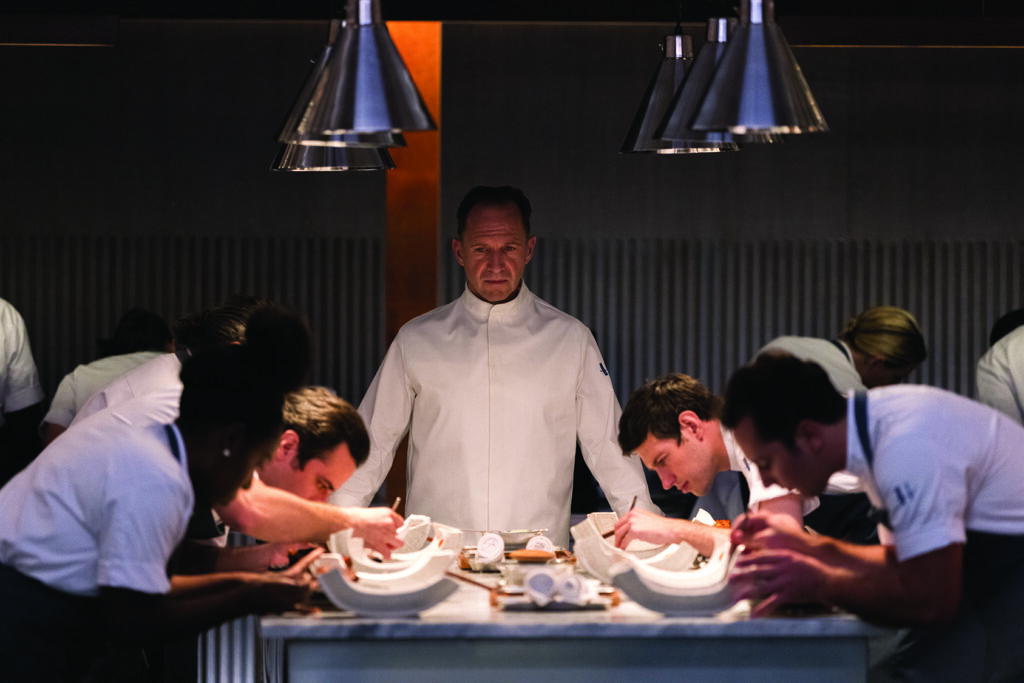
6. “The Menu” (2022) is the diabolical tale of a chef (Ralph Fiennes) who, tired of cooking otherworldly meals for unappreciative, shallow rich people, devises a fiendish revenge on a personally handpicked group of diners. “The Menu” serves up archetypes of the entitled and superficial that are uncomfortably identifiable. It is only when he interacts with Margot (Anya Taylor-Joy), someone not intended to be there, that hints of what he is about to do are dropped like breadcrumbs along a trail. How they interact is delightful, like a chess game between masters. But the best is saved for the end, a tribute to a childhood favorite, a finish that is gothic, incendiary and will make you laugh despite the horror. (VOD)
7. “Menus Plaisirs – Les Troisgros” (2023) is a deep dive into one of the most famous French restaurants in the world. In the middle of nowhere, the Troisgros family set up shop in the village of Ouches, 65 miles from Lyon, long the hotbed of French haute cuisine. The Troisgros own three restaurants in the region, but the one profiled is Le Bois Sans Feuilles (The Woods Without Leaves). Despite name and location changes over the years, the one constant has been the three Michelin stars they were awarded in 1968. Michel, the chef de cuisine and grandson of the founder, is now in the process of handing over the reins to his two sons, one who will take over Le Bois and the other who will manage their other two restaurants. The camera seamlessly follows the entire lunch and dinner preparations and service, from market to dessert, allowing you an unprecedented look at how the meals are created as they scrupulously prepare to serve the guests, most of whom have reserved months in advance. All the more remarkable, this documentary is four hours in length and at the end, you’ll long for more. (PBS Passport)
8. “Ratatouille” (2007) is set in Paris. Remy is a rat with the unlikely dream of becoming a chef. Part of a clan of scavengers, his loftier ambitions are scorned by his peers. Remy befriends a lowly scullery worker, Linguini, in the kitchen of a famous restaurant and teaches him to cook. They bond and Remy becomes his sub rosa instructor. Through fits and starts, villains (the restaurant owner and the health inspector) and a pack of rats, Remy and Linguini join forces, even winning over the vicious food critic, Ego, with their ratatouille. And the good guys cook happily ever after. (VOD)
9. “Sideways” (2004) is the film that upended, temporarily at least, the trajectory of Merlot wine and brought deserved attention to actors Paul Giamatti (Miles) and Sandra Oh (Stephanie). Two men approaching middle age with not much to show for it take a road trip to the Santa Barbara wine country. Miles, a depressed would-be wine connoisseur, wants to show off his knowledge to his friend Jack (Thomas Haden Church), an actor now reduced to voice-overs and commercials. Miles takes them on one last outing before Jack gets married. Jack, however, is more interested in a last fling than fine dining. The dialogue was crisp, famous for the line “No more f***ing Merlot” and the hair-pulling fight between Jack and Stephanie. Despite the fact that the main characters are remarkably unsympathetic, the film is charming, insightful and laugh-out-loud funny. (Hulu)
10. “The Taste of Things” (2023), starring Juliette Binoche and Benoît Magimel, is the quintessential metaphor of food as love. Set in the 19th century, Eugénie and Dodin work side by side in Dodin’s kitchen preparing elaborate, otherworldly dishes to serve to his friends. As she chops and stirs and tastes, he looks at her lovingly, recognizing her beauty but mainly her unselfconscious ability to produce finished dishes of exquisite taste and elegance. They share a bed, but she has been reluctant to share her life. In the kitchen they are equals, each adding to the other’s skills in a stunning example of the whole being more than the sum of its parts. Working in the kitchen together is a daily seduction of tasting and longing. She will not give up her independence, and he feels less than complete without her. Truly the star of the film is the extraordinary feasts they prepare as you see the many steps it takes to make their multicourse and complex meals, all of which represent so much more than food. (VOD)
Happy viewing



